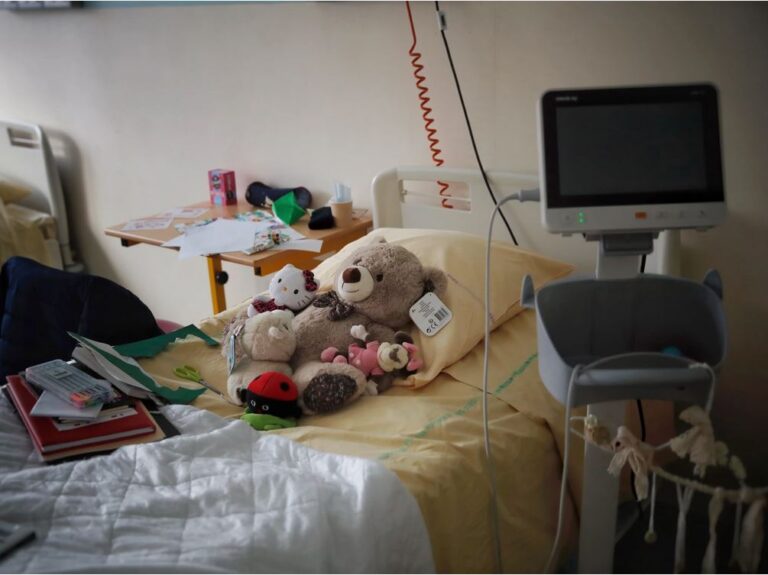PEORIA — Hospitals are facing a capacity crunch just in time for the holidays. That’s due to respiratory viruses, but COVID-19 isn’t the biggest driver of hospitalizations this winter. Instead, medical officials say an earlier-than-usual onset of RSV, coupled with an influenza wave, are packing emergency departments to capacity.
That’s particularly true for pediatric units like those at the OSF HealthCare Children’s Hospital of Illinois in Peoria, said Dr. Mike Cruz, OSF HealthCare’s chief operating officer.
Listen to this story here.
“We’re at full capacity, beds and staff. We’re seeing children requested to be transferred in from spaces we know normally don’t transfer kids in from, which means, Iowa, St. Louis, Chicago, Indianapolis, which have children’s hospitals that take care of these sick children, as well. So they’re overwhelmed,” Cruz said.
The return to normalcy may be contributing. COVID-19 mitigation measures like masking and social distancing aren’t used as frequently as they once were. Cruz said influenza and child vaccination rates are also down, below pre-pandemic levels.
OSF HealthCare’s OnCall program is launching a remote patient monitoring program targeted to pediatric RSV patients. It’s meant to decrease the burden on emergency departments by assessing which RSV patients are doing well enough to be cared for at home, and providing guidance to caregivers.
“Our program is trying to help kind of curb those that are well, keeping them in an environment that where they’re not having to take a bed or take a room from another patient that’s sicker,” said Dr. Matt Gorman, OSF OnCall Digital Health’s chief medical officer.
The past experiences with remote patient monitoring learned during the hospital patient capacity crunches of the COVID-19 pandemic are coming in handy.
“The lessons we learned tremendously helped us spin up this program rather rapidly, and learn how to scale up on a significant component and also gain some comfort and caring for patients remotely on what we can do safely at home,” said Gorman. “And then also create an escalation process for those patients that are not doing well and need more urgent care.”
Cruz said COVID-19 cases are up, too, but RSV and influenza cases make up the bulk of those currently hospitalized for illnesses. Flu numbers are on par with this time last year, but RSV cases are up considerably. He said “fine tuning” is currently happening around elective or semi-elective procedures as hospitals seek to manage bed space.
For now, Gorman said remote patient monitoring is primarily focused on RSV cases, but OnCall is eyeing potential expansion to other respiratory illnesses like bronchiolitis.
The OnCall RSV remote patient monitoring is free for patients from birth to age five in Illinois and Michigan. A provider referral is required.

